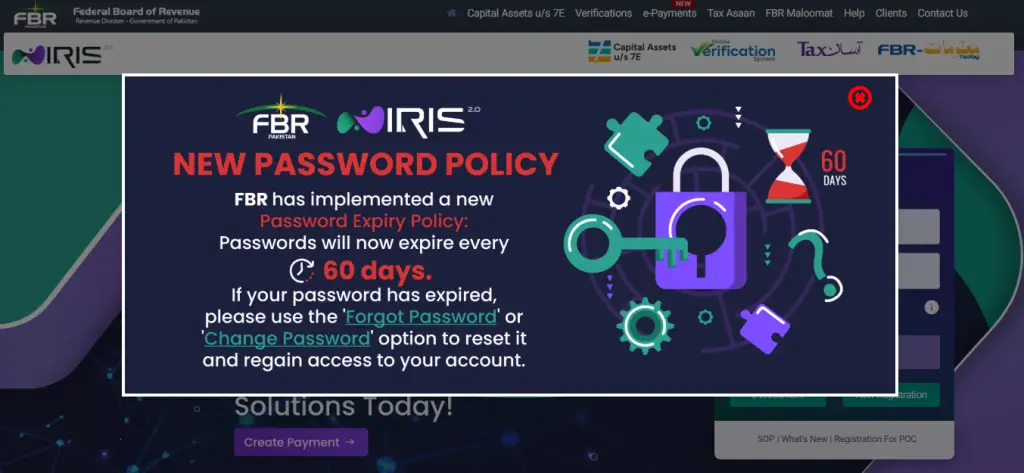Table of Contents
ToggleCommon Mistakes to Avoid When Filing Your Income Tax Return
Filing an income tax return is a crucial process for individuals and businesses in Pakistan, and ensuring accuracy is essential to avoid penalties, audits, and unnecessary complications. While tax filing can seem daunting, being aware of common mistakes can make the process smoother. This article outlines the most frequent errors that taxpayers make when filing their income tax return and provides tips on how to avoid them.
1. Failing to File on Time
One of the most common mistakes taxpayers make is missing the filing deadline. The Tax Year 2025 (2024-2025) has a deadline of September 30, 2025, for salaried individuals. Failing to file your tax return on time can result in hefty penalties.
1.1 How to Avoid This Mistake
-
Keep track of filing deadlines by marking them on your calendar or setting reminders.
-
If you miss the deadline, request an extension from the FBR before the due date, if applicable.
2. Incorrect Personal Information
Entering incorrect personal details like your name, address, National Tax Number (NTN), or CNIC number can delay the processing of your return or even lead to a rejection.
2.1 How to Avoid This Mistake
-
Double-check your personal information against your National Database and Registration Authority (NADRA) records to ensure everything is accurate.
-
Verify your NTN and CNIC numbers before submitting your return.
3. Missing Income Sources
Salaried individuals, business owners, and freelancers often fail to declare all their income sources. This includes salary, rental income, investment income, and business profits.
3.1 How to Avoid This Mistake
-
Gather all relevant income documents, such as salary slips, bank statements, and property rent receipts.
-
Ensure all sources of income are accounted for in your return.
4. Incorrectly Reporting Tax Deductions
Claiming deductions for expenses or investments that do not qualify is another common error. Taxpayers may not be aware of which deductions are legally allowed under Pakistan’s tax laws.
4.1 How to Avoid This Mistake
-
Familiarize yourself with eligible deductions, such as medical expenses, donations, and retirement contributions.
-
Keep receipts and records of all deductible expenses.
-
Consult a tax consultant to confirm that your deductions comply with the law.
5. Misunderstanding Tax Rates and Brackets
In Pakistan, tax rates are progressive, meaning the rate increases as your income rises. Failing to apply the correct tax rate or incorrectly categorizing your income can lead to an overpayment or underpayment of taxes.
5.1 How to Avoid This Mistake
-
Ensure that you apply the correct tax rates based on your income bracket.
-
Use the tax rates for salaried individuals for Tax Year 2025 (2024-2025) correctly.
-
Tax calculators available on the FBR website or online can help ensure accurate tax calculations.
6. Forgetting to Report Foreign Income
If you earn income from foreign sources, it is essential to declare it in your income tax return. Many individuals overlook this part, especially if they have income from investments or employment abroad.
6.1 How to Avoid This Mistake
-
Make sure to report all foreign income, including salary or investment income from abroad.
-
If you are unsure about how to declare foreign income, consult a tax consultant with experience in international taxation.
7. Failing to Include Tax Withheld by Employer
In Pakistan, employers withhold a certain amount of tax from employees’ salaries under the Withholding Tax system. Failing to include this withheld tax in your return can result in either underreporting your tax liability or not claiming a refund.
7.1 How to Avoid This Mistake
-
Always check your salary slips and ensure the tax withheld by your employer is correctly mentioned in your return.
-
If your employer has deducted tax, include this amount when filing your return to avoid paying tax again.
8. Not Claiming Tax Refunds
Many taxpayers overlook the possibility of claiming a tax refund if they have overpaid their taxes throughout the year. If your employer has withheld more tax than necessary, you are eligible for a refund.
8.1 How to Avoid This Mistake
-
Carefully review your tax deductions and the tax already paid by your employer.
-
If you have overpaid, ensure that you apply for a tax refund when filing your return.
9. Using Incorrect Tax Forms
Using the wrong tax form for your specific type of income or business can lead to complications. The FBR provides different forms for salaried individuals, businesses, and professionals.
9.1 How to Avoid This Mistake
-
Ensure that you are using the correct tax return form for your category (e.g., salaried, business, freelancer).
-
The IRIS portal will automatically suggest the correct form based on your registration details.
10. Failing to Keep Proper Documentation
One of the biggest mistakes is failing to maintain proper records of your income, expenses, deductions, and taxes paid. In case of an audit or inquiry, you may need to provide supporting documents to substantiate your claims.
10.1 How to Avoid This Mistake
-
Keep detailed records of all documents related to your income and deductions, such as bank statements, receipts, employment contracts, and tax payment receipts.
-
Store records for at least five years, as recommended by the FBR.
11. Ignoring the Audit Process
Being selected for an audit can be intimidating, but failing to respond appropriately or provide the required documentation can result in penalties and additional taxes.
11.1 How to Avoid This Mistake
-
If selected for an audit, promptly respond to FBR notices and cooperate with the process.
-
Work with a tax consultant who can help navigate the audit process and represent you in front of the FBR.
12. Not Seeking Professional Help When Needed
Filing taxes can be complex, especially if you have multiple income sources, deductions, or if you’re self-employed. Many taxpayers make the mistake of not seeking professional help when needed.
12.1 How to Avoid This Mistake
-
If you’re unsure about the filing process or the application of tax laws, consult a tax professional to help ensure your return is filed accurately.
-
A tax consultant can also guide you on tax planning strategies to minimize your liability.
Conclusion
Filing your income tax return correctly and on time is essential for complying with Pakistan’s tax laws. By avoiding common mistakes such as failing to report all income, applying incorrect tax rates, and missing deadlines, you can ensure a smooth tax filing process. To minimize errors and maximize your tax refund or savings, consider working with a tax consultant. By staying informed and diligent, you can meet your tax obligations and avoid penalties or audits.



